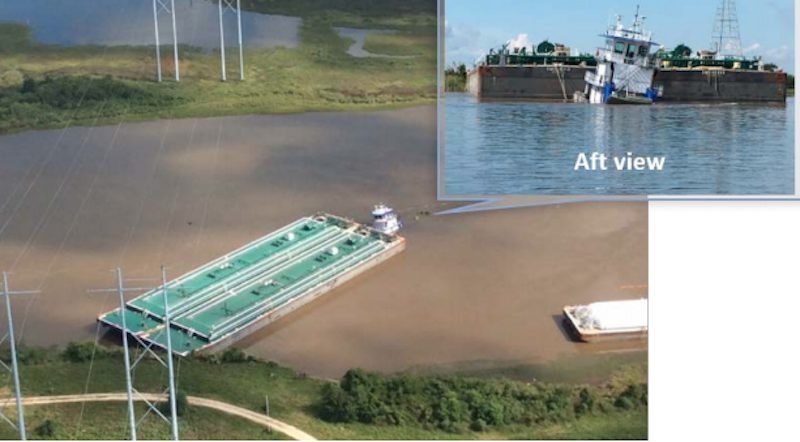The National Transportation Safety Board determined that the “probable cause of the flooding and sinking of the towing vessel Savage Ingenuity was the absence of company procedures requiring the closure of weather deck doors at all times when underway, which resulted in the rapid down flooding into the engine room when the vessel heeled while perpendicular to a strong current with the head of its tow pushed into a river bank.”
That was the conclusion of the NTSB’s Marine Accident Brief 18-21. The brief describes the chain of events that led to the loss of the 68'×28', 1,880-hp towboat in the Gulf Intracoastal Waterway near Sulphur, La., on Sept. 5, 2017, in the wake of Hurricane Harvey.
Accurately determining and articulating the true causes of any accident, however, often proves elusive. As is almost always the case, human shortcomings resulted in the towboat’s sinking, not some type of unforeseeable circumstance, such as the high water and swift currents generated by Hurricane Harvey’s record rainfall. Specifically, which shortcomings were causative and to what degree? How should they be ranked? Those are always debatable points upon which agreement often goes hard aground because the truth is always unpalatable to someone.
The Savage Ingenuity, designed with a very-low freeboard, heeled over from the forces acting on it. The towboat took enough water on deck to make it over the very low sill of the engine room door on the low side, and from there the process of down flooding began.
The flooding shut down the engines and the towboat’s fate was sealed.
Fortunately, there was no loss of life — this time. It doesn’t always go so well. But the costs of this “mistake” were steep: an estimated $1.35 million in damage to the boat, which was later salvaged, and the substantial environmental damage from the 11,800 gals. of diesel that was released, most of which was not recovered.
The obvious $1.35 million dollar question is why were the engine room doors open? After the accident, the company updated operating procedures by requiring that “all hatches, doors and portholes on the weather deck shall remain in the closed position” when the vessel is under way.




